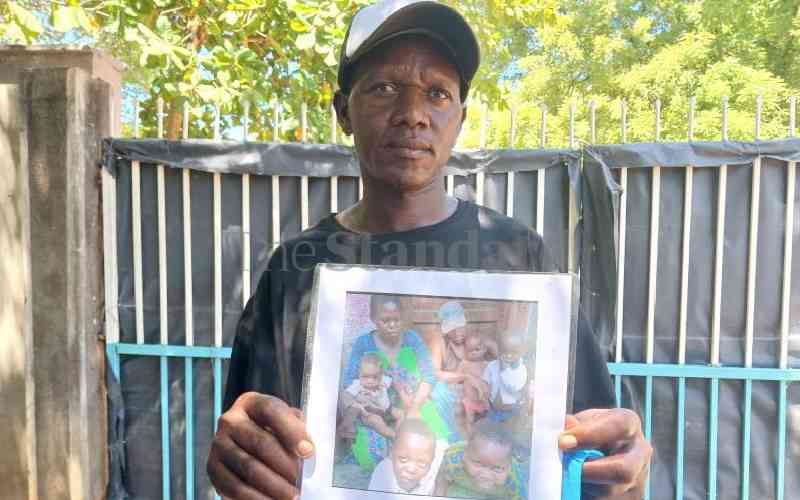×
The Standard e-Paper
Kenya’s Boldest Voice

A sombre mood engulfed families of those who perished in the Shakahola forest as they thronged Malindi Hospital Mortuary to collect bodies of their loved ones.
Tears rolled down William Ponda's cheeks as he collected the bodies of his mother, Esther Biria Masha, nephews Harry Ngonyo and Seth Hinzani Ngala, and a sister-in-law, Emily Wanje.